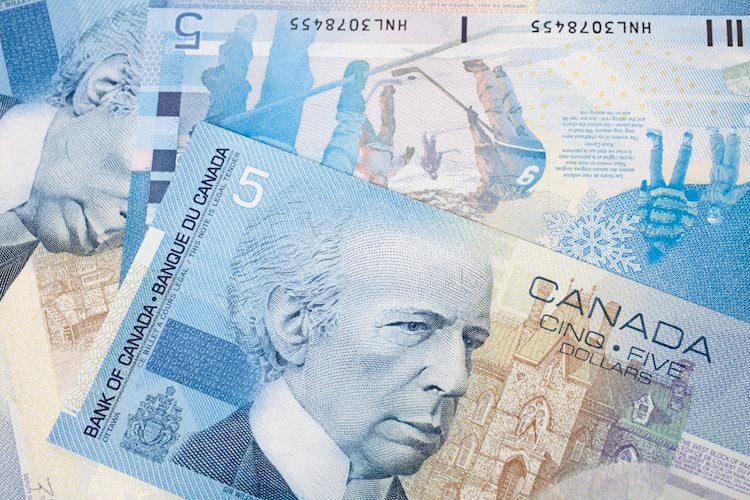Tech
Check your SR&ED history: Canadian tech companies could be in for post-holiday windfall

Legislation this year identified ‘excluded loans’ as exempt from federal assistance.
Canadian startups might find some extra cash on their books this holiday season, thanks to a key provision in Bill C-69, which passed in June.
The bill, which is largely focused on clean energy investment tax credits, includes a legislative amendment to address an 2021 decision by the Tax Court of Canada that deemed government issued loans below market rates are a form of government assistance.
“This is a PSA to check your SR&ED history … and see if you can capture possibly hundreds of thousands or millions of dollars.”
Bryan Watson
That ruling required recipients to treat favourable loans provided by government institutions as a form of government assistance—like a grant—for taxation purposes.
That means those funds could be taxable, and incompatible with other government assistance programs, such as Scientific Research and Experimental Development (SR&ED) incentives, even if they were fully repayable.
According to the CRA’s website, there were more than 21,500 SR&ED claims in the one-year period that ended March 31 of this year, totalling more than $4.2 billion.
Introducing excluded loans
Bill C-69 introduced the term “excluded loan,” which applies to loans that are now exempt from being treated as government assistance.
According to Canada Revenue Agency (CRA) spokesperson Nina Ioussoupova, the definition applies to loans that are issued by a government, municipality, or other public authority in Canada, to a Canadian resident or partnership for the purpose of earning income from a business or property.
“The loan must be evidenced in writing [and] must not be a forgivable loan,” she said, adding that there is also a requirement that “at the time the loan was made, bona fide arrangements were made for repayment of the loan within a reasonable time.”
Loans that do not meet the standard for “excluded loan” will not be affected by the change and will continue to be treated as a form of government assistance.
Tax code battle
Prior to 2021, most businesses treated government-issued loans the same as those issued by private institutions, even if they were issued at below-market rates or on more favourable terms.
That approach, however, was deemed to violate the tax code after a judge ruled that Québec-based aviation, defence, and healthcare provider CAE Inc. was unable to use a $250-million loan from Industry Canada’s Strategic Aerospace and Defence Initiative in conjunction with SR&ED incentives.
RELATED: Feds announce VCCI renewal, SR&ED and pension fund changes ahead of Fall Economic Statement
“The court said that’s a form of government assistance,” explained Ryan Minor, the director of taxation for Chartered Professional Accountants (CPA) Canada. “When you have government assistance, it becomes taxable income, and it reduces investment tax credits for research and development.”
The ambiguity on how to handle repayable government-issued loans offered at below market rates—like those offered through the Business Development Bank of Canada (BDC), Canada Infrastructure Bank (CIB), EDC, and FCC—left by the ruling inspired CPA Canada and the Canadian Bar Association to send an open letter to the Director General of the Tax Policy Brand of the Department of Finance last summer requesting clarity.
Those questions were addressed by Bill C-69, which amended the Tax Law to exclude government-issued repayable loans from government assistance programs, and further clarified in a written response to CPA Canada in late November.
“Basically, it applies to any loan from a government, where at the time the loan was made, bona fide arrangements are made for repayment, and the funds were used for the purpose of earning income from business or property,” explained Minor. “Even if there’s a concessionary interest rate, the fact that it’s repayable and from a public body means you should be able to consider it not government assistance.”
Check your books
Minor believes that the legislative amendment was included in Bill C-69 to ensure there was no ambiguity regarding how the clean energy incentive programs it introduced could be used.
“I don’t think it was the government’s intent to treat that as government assistance,” he said of the original Tax Court ruling.
Not only did the bill clarify the policy moving forward, but it was also deemed applicable retroactively to before the CAE Inc. ruling, starting on the first day of 2020. That means Canadian businesses that treated government-issued repayable loans as government assistance in the wake of the CAE ruling can go back and amend their tax filings.
“This ensures that concessional loans issued during the pandemic or to finance the acquisition of assets eligible for clean investment tax credits would generally not be treated as government assistance,” explained Ioussoupova of the CRA.
“These are large sums of money in some cases,” added Bryan Watson, the managing director of CleanTech North and senior vice president of business development at Venbridge, which specializes in helping technology firms apply for SR&ED financing.
While such amendments are typically restricted to an 18-month window, the CRA’s response to CPA Canada clarifies that affected claimants can be removed from net taxable income, and “A larger deduction from the pool of deductible SR&ED expenditures may be taken, or the additional balance can be carried forward to be deductible in subsequent years.”
“This is a PSA to check your SR&ED history, because if you have any of these loans, you may want to speak to your accountant and see if you can capture possibly hundreds of thousands or millions of dollars,” Watson said. “This may be a huge part of how you manage to finance and cash flow your business, especially right now, when equity is tight and we’re going into the holidays.”









